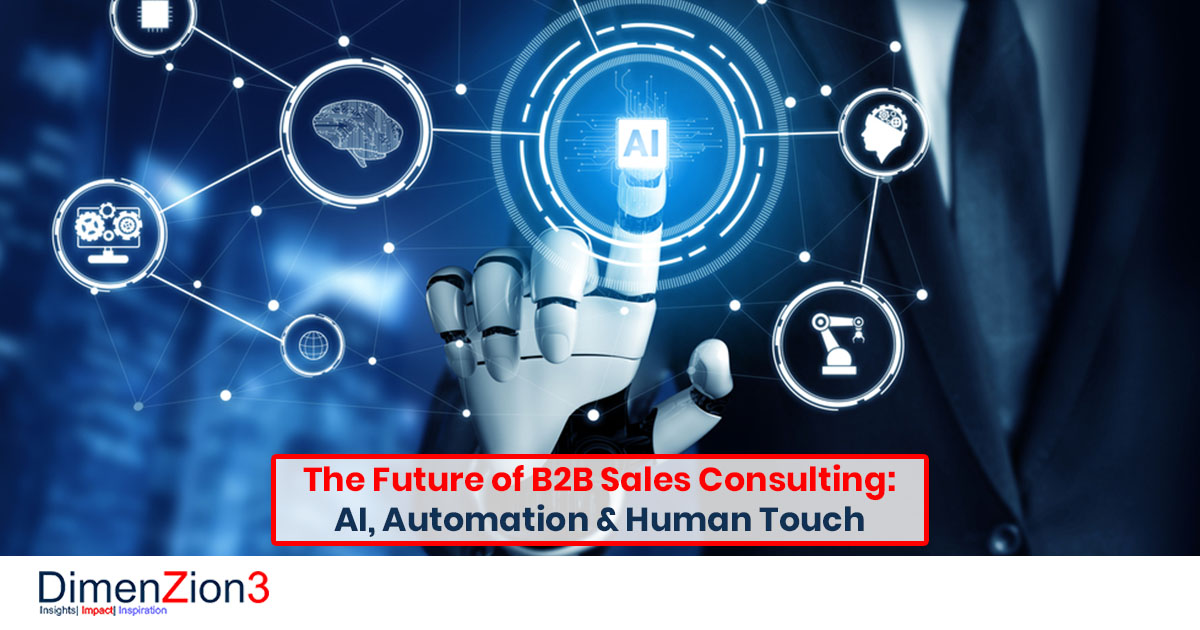Step-by-step checklist for adopting Growth Systems For B2B
Open Efficiency and Growth With AI Automation for B2B Firms
AI automation is changing the landscape for B2B business. It streamlines procedures and minimizes dependence on human intervention. This change allows services to make quicker, data-driven decisions. As companies explore which refines to automate, they should also take into consideration the right devices to carry out. Nevertheless, challenges remain in embracing AI technology. Minarik AI. The effects of these changes could form the future of numerous business in methods yet to be totally recognized
Recognizing AI Automation in the B2B Context
As companies progressively seek performance, recognizing AI automation in the B2B context becomes crucial. AI automation entails using innovative technologies to simplify procedures, minimize human treatment, and improve decision-making processes. In the B2B landscape, this can show up in numerous forms, such as automating customer care communications, handling supply chain logistics, or optimizing advertising and marketing campaigns. Business can take advantage of AI to analyze massive datasets quickly, enabling them to identify trends and understandings that notify calculated options. Moreover, AI systems can integrate effortlessly with existing innovations, giving a cohesive platform for taking care of service functions. This understanding prepares for organizations to discover how AI can change their procedures, enhance productivity, and ultimately foster sustainable development in an open market.
Key Benefits of Carrying Out AI Automation

Determining Processes Suitable for Automation

Picking the Right AI Equipment for Your Organization
When B2B companies take into consideration automating their processes, choosing the right AI tools comes to be vital for accomplishing wanted outcomes. Firms ought to begin by reviewing their distinct demands and objectives, making certain positioning with organization goals (Minarik AI). Assessing the scalability, versatility, and integration capacities of potential devices is important, as these factors figure out long-term efficiency. Organizations should additionally consider user-friendliness and the degree of support given by vendors, as these components can impact effective implementation. Furthermore, analyzing client evaluations and instance studies can supply understandings right into just how particular AI services carry out in real-world circumstances. By diligently selecting AI tools that fit their operational requirements, B2B business can improve effectiveness and drive development while decreasing possible disruptions
Conquering Difficulties in AI Adoption
B2B business usually encounter significant challenges in adopting AI technologies, especially problems connected to information top quality and resistance to transform monitoring. Poor data quality can impede the efficiency of AI systems, while employee reluctance to embrace new processes can stall implementation efforts - AI Automation For B2B. Addressing these challenges is important for effective AI assimilation and maximizing its possible advantages
Information Quality Issues
Guaranteeing high information top quality is necessary for the successful adoption of AI technologies in business-to-business settings. Unreliable, incomplete, or outdated information can badly impede AI initiatives, leading to wrong insights and poor decision-making. Firms usually deal with challenges such as data silos, inconsistencies throughout various resources, and a lack of standardized information layouts. To get rid of these problems, organizations must purchase information cleaning, combination, and governance processes. Applying durable data monitoring methods guarantees that the information fed right into AI systems is pertinent and reputable. Additionally, fostering a culture of information high quality understanding amongst staff members can boost information accuracy with time. By dealing with information quality issues, B2B firms can launch the full capacity of AI automation, driving performance and growth.
Change Administration Resistance

Measuring the Impact of AI Automation
Gauging the influence of AI automation in B2B firms needs a clear understanding of essential performance indications (KPIs) that line up with company objectives. Reliable information evaluation strategies are crucial for analyzing the outcomes, while durable ROI evaluation strategies aid establish the economic benefits of automation efforts. With each other, these parts supply a considerable framework for assessing AI's contributions to organizational success.
Trick Efficiency Indicators
Key efficiency indications (KPIs) work as crucial devices for B2B firms to examine the efficiency of AI automation initiatives. By establishing clear metrics, companies can determine improvements in operational performance, expense reduction, and revenue development directly attributable to automation. Common KPIs consist of cycle time decrease, mistake rates, consumer contentment scores, and check out here staff member efficiency degrees. These signs give understandings right into exactly how AI systems are maximizing processes and enhancing general performance. Additionally, tracking KPIs allows business to determine locations for additional renovation and to straighten AI automation efforts with critical business goals. Inevitably, a distinct framework of KPIs assurances that B2B business can quantitatively review the influence of AI automation on their operations and drive constant growth.
Information Evaluation Strategies
Effective data analysis methods play an important function in reviewing the influence of AI automation within B2B companies. By using statistical techniques, organizations can identify patterns and patterns in functional information, enabling them to assess the effectiveness obtains achieved via automation. Techniques such as regression analysis and time series projecting give insights into how AI-driven processes affect efficiency and decision-making. In addition, data visualization devices can efficiently connect findings to stakeholders, promoting informed tactical decisions. Maker knowing algorithms can even more enhance analysis by anticipating future results based on historical information, supplying workable understandings. Eventually, these methods enable B2B companies to gauge success and maximize their AI automation efforts, making sure positioning with company objectives and boosting total performance.
ROI Assessment Approaches
Reviewing the return on financial investment (ROI) of AI automation is crucial for B2B firms seeking to understand the economic ramifications of their technological initiatives. Business can utilize various ROI analysis techniques to gauge the performance of AI executions - Growth Systems For B2B. One efficient approach entails computing expense savings by contrasting functional costs before and after automation (Minarik AI). Furthermore, determining efficiency enhancements with essential performance indicators (KPIs) helps quantify the benefits of AI. Client complete satisfaction metrics can also supply insights into the impact of automation on service quality. To assure a comprehensive evaluation, companies should consider both straight financial returns and abstract benefits, such as boosted decision-making capabilities and competitive benefit. This diverse evaluation enables B2B firms to make informed choices relating to future financial investments in AI innovation
Future Fads in AI Automation for B2B Firms
What technologies exist in advance for AI automation in B2B business? Arising trends indicate a significant change in the direction of improved information analytics abilities, making it possible for businesses to make more informed decisions. Predictive analytics will become increasingly important, enabling business to anticipate market modifications and customer needs. In addition, the integration of AI with Internet of Points (IoT) innovation is expected to enhance procedures by offering real-time insights and automation of processes. Business will certainly likewise concentrate on enhancing consumer experiences with individualized marketing driven by AI algorithms. Moreover, developments in all-natural language handling will promote far better interaction between clients and companies. As these patterns evolve, B2B firms need to adjust to utilize AI automation efficiently, making sure continual growth and competitive benefit.
Often Asked Concerns
What Industries Benefit one of the most From AI Automation in B2B?
Production, money, medical care, and logistics markets benefit the most from AI automation in B2B. These fields leverage AI to maximize processes, enhance decision-making, and improve total functional performance, driving substantial development and technology.
Just How Does AI Automation Effect Employee Duties and Responsibilities?
AI automation reshapes employee duties and obligations by simplifying repetitive jobs, enabling workers to concentrate on tactical initiatives. This shift cultivates skill development, boosts productivity, and urges collaboration, inevitably driving business growth and development.
What Are Common Misconceptions Concerning AI Automation in B2B?
Typical false impressions concerning AI automation in B2B include anxieties of task loss, beliefs that AI can completely change human judgment, and ignoring the significance of partnership between AI systems and workers for perfect outcomes.
How Can Companies Ensure Data Personal Privacy With AI Automation?
Organizations can guarantee data privacy with AI automation by applying robust file encryption methods, adhering to governing compliance, performing normal audits, and training staff members on data taking care of practices to alleviate risks and secure sensitive information.
What Are the Costs Connected With Executing AI Automation?
The prices linked with implementing AI automation consist of software program purchase, infrastructure upgrades, training workers, continuous upkeep, and potential downtime throughout integration. Furthermore, business might sustain expenditures related to data protection and conformity steps.
Measuring the impact of AI automation in B2B business calls for a clear understanding of essential efficiency indicators (KPIs) that straighten with organization objectives. Trick efficiency signs (KPIs) serve as vital tools for B2B firms to analyze the performance of AI automation initiatives. Reliable information evaluation strategies play an essential role in reviewing the impact of AI automation within B2B firms. Examining the return on investment (ROI) of AI automation is important for B2B firms looking for to comprehend the monetary effects of their technological campaigns. What technologies lie in advance for AI automation in B2B firms?